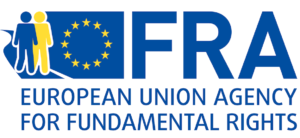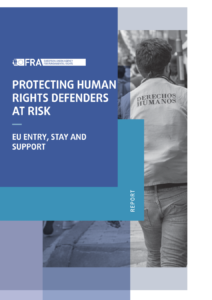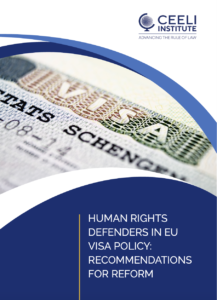 The EU’s Agency for Fundamental Rights has issued a report that continues to build the case for enacting changes in the EU’s approach to regulating entry and stay in the EU for third-country HRDs. The report confirms that visas are an important protection tool to counteract persecution against threatened HRDs in their home countries, but that current EU practice in this is patchy and inconsistent: different types of visas used for HRDs and obstacles obtaining visas, varying relocation practices across the EU, and scant support for longer-term stays.
The EU’s Agency for Fundamental Rights has issued a report that continues to build the case for enacting changes in the EU’s approach to regulating entry and stay in the EU for third-country HRDs. The report confirms that visas are an important protection tool to counteract persecution against threatened HRDs in their home countries, but that current EU practice in this is patchy and inconsistent: different types of visas used for HRDs and obstacles obtaining visas, varying relocation practices across the EU, and scant support for longer-term stays.
In the area of visa facilitation, some of the report’s most important recommendations to EU member states and agencies include:
- Access to visas can immediately be improved thanks to existing flexibility in EU law, which is not adequately taken into account by Member States’ policies. For instance, access to short-stay visas should be facilitated by applying the existing exceptions and derogations in the EU Visa Code.
- The EU should ultimately review the adequacy of its legal tools for supporting human rights defenders, especially the Visa Code, the Visa Information System (VIS) Regulation, the European Travel Information and Authorisation System (ETIAS) Regulation and the Entry-Exit System Regulation, and also suggest possible amendments, if necessary.
The report also emphasizes that the current practical limitations on access to visas and the granting of only shorter-term stays may force HRDs to seek international protection as the only way to ensure their security. However, research from the Netherlands and Spain shows that less than 10% of HRDs who temporarily relocate to the EU actually request asylum.
Araminta has been advocating for an effective and enabling EU visa framework as part of protection strategies for at-risk human rights defenders in third countries, whose safety could be greatly enhanced through the possibility of temporary relocation.
Read more:
CEELI Institute: Human Rights Defenders in EU Visa Policy: Recommendations for Reform (2019)

